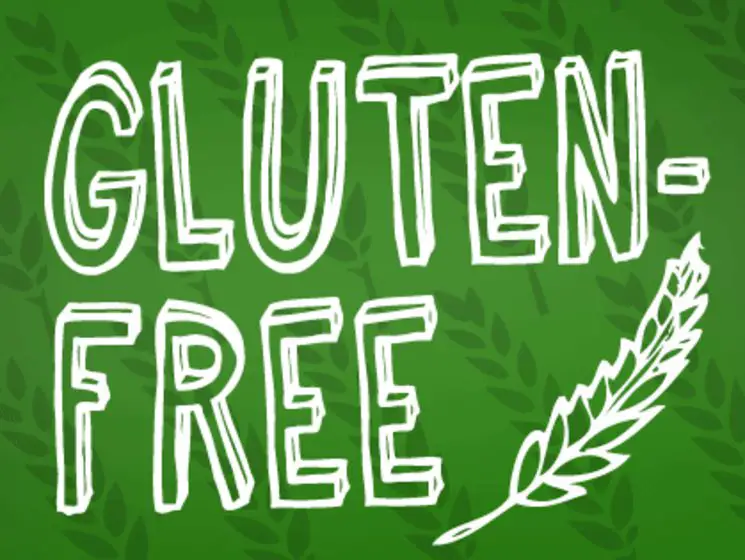Over the past few years, there have been several food movements that have taken the world by storm. Avocado toast and quinoa bowls are just a few examples of how the diet of Americans, especially young adults, are rapidly changing. Although these food trends may fade out overtime, there is one trend that is growing in numbers and should stick around for a while—a gluten free diet. Whether it be from an increase in allergies, or just a more health-conscious generation, no one can deny that gluten free diets are becoming more and more common.
Still, the reaction of the new diet trend from the rest of the world has been mixed. Some people commend gluten free eaters for making an attempt to rid their bodies of anything unnatural or processed, while others may have a tendency to find the diet pretentious or inconvenient. It is not uncommon for people to be annoyed by others’ dietary preferences, but that is no reason to succumb to eating foods that are bad for your body.
Despite your feelings on the subject, when looking at the effects of a gluten free diet on the body, it is clear that there are a great deal of health benefits. By reading some of the concrete evidence here, you might find yourself tempted to try a gluten free diet, even if you are not gluten intolerant.
1. You Avoid Processed Foods
By starting a gluten free diet, you will automatically be eliminating processed foods from your body. The result is that your body will be rid of unnecessary chemicals and artificial flavors, and keeping those harmful foods out of your body will have only good effects on your health.
For example, you will stay full longer, lose more weight and have a better chance of fighting off infections. Your body will thank you for eliminating the foods that make it work hard throughout the day. So, at the end of the day, one of the main reasons people benefit from going gluten free is that it, by and large, it eliminates foods from your diet that most nutritionists already know will make you feel worse.
2. Celiac Disease Often Goes Undetected
An important reason to consider a gluten free diet is that celiac disease is not always apparent or active in a person’s body. Many people can live their lives normally, eating whatever they please with no trouble, but their bodies are suffering greatly from an unknown disease. The result of eating a gluten diet over a long period of time when you have celiac disease could be as severe as colon cancer.
If you want to avoid lengthy, costly and intrusive doctors’ appointments to see if you might have an undetected case of celiac, you could just save yourself the time and money and simply cut gluten out of your diet. Since it’s already established that removing many gluten-containing foods from your diet benefits you, when you consider the additional factor that you may unknowingly have celiac disease, the risk/benefit analysis of preventatively removing gluten from your diet begins to really tip toward the benefit side.
3. You Eat Better
One of the most beneficial things about going gluten free is that it will drive you toward healthier foods as a substitute. When you are at work and are looking for an afternoon snack, you won’t reach for the donuts in the conference room or the candy bar from the vending machine. Instead, you might have an apple or some veggies with hummus. Having the mindset of avoiding gluten will instinctively help you to make healthier choices about what you put in your body.
As a result, even going gluten free in the same way people go half-vegetarian, or vegan once a week, can be a great compromise. When you avoid gluten, you avoid a whole host of foods that are bad for you for a litany of other reasons, so cutting them out of your diet periodically will do nothing but bring you health benefits, and you’ll also learn to appreciate the treats more when you decide to have them.
4. Enjoy Healthy Weight-Loss
With summer just approaching, everyone is ready to lose some weight before hitting the beach. Eating gluten free foods is a healthy and natural way to shed those few extra pounds. Instead of going on a crazy diet and not eating anything, you will have the same effect by eating the right things for your body.
You will also be able to feel stronger and more fit if you structure your weight loss around gluten free foods. You will be able to eat an appropriate amount throughout the day, meaning you won’t feel weak and tired like you would if you simply restricted yourself from eating.
5. You’ll Have More Energy
A gluten free diet is something worth considering because it has an effect on the entire body. Foods containing gluten make you groggy and less productive, so by eliminating them, you will be able to feel more awake and refreshed to take on the day. Gluten free foods will also reduce bloating, which is a major cause for feeling tired and sluggish. So, not only will you feel more awake, but you won’t be as bloated after eating.
Related to energy levels, gluten free diets improve concentration and mental focus. When your body is busy coping with the gluten inside it, your brain becomes consequently distracted. By eliminating the tendencies of bloating and grogginess, your mind is free to focus all of its energy on other things, making you more productive and healthier all at the same time.
The world is slowly but surely moving in a gluten free direction. Almost every restaurant or grocery store has at least some gluten free options. The next time you go out to dinner or go to the store, try purchasing some of these foods and see how you feel. If you are not gluten intolerant, you could start slow in order to ease yourself into a gluten free lifestyle. By starting off just eating one gluten free meal a day, your body and mind will start to adjust to the idea of eliminating gluten, and before you know it, you will be living and happier and healthier life.


















Absolute nonsense. Many people who go GF without a medical condition end up without enough nutrients in their diets. This article is not only uneducated, but also incredibly irresponsible.
Hello there,
I’m not sure where to start in responding to your article. Maybe you haven’t been reading the latest research results on the effects of gluten free eating on non-celiac bodies (in the long run, this may cause cardio vascular problems). Or maybe you’re not aware that all the reasons you quote are non valid and kind of dumb. But mostly, I’m just annoyed at your inaccurate way of giving information.
Celiacs don’t eat gluten free because it’s healthy, or better. They eat gluten free because if they don’t, they get sick. Seriously ill. In the short term, but also in the long term. Your statement ‘The result of eating a gluten diet over a long period of time when you have celiac disease could be as severe as colon cancer’ is not correct; it is intestinal cancer and a very specific form.
Your reasons gluten free is good are beside the point. I will refute them here.
1. You avoid processed foods. Nonsense. There is as much processed gluten free food available as there is gluten rich food. Automatically doesn’t come into it. Avoiding processed foods is something you do consciously, as a choice. You certainly don’t need to avoid gluten in order to avoid processed foods. Celiac foods often even have a higher level of sugars and/or fats compared to ‘regular’ foods.
2. Celiac disease often goes undetected. O right. So you just eliminate foods on the off chance that you may have CD?? Complete bollocks. A blood test (available over the internet even) will tell you if you have gluten antibodies. A biopsy of your intestine has long since ceased to be necessary to diagnose gluten intolerance. So get the blood test and quit whining about ‘I might have celiac disease’. If you think you have, FIND OUT.
3. You eat better. Again, this is complete nonsense. Eating better is not something associated solely with gluten.
4. Enjoy healthy weight loss. I don’t know where people get this idea, but it is nonsense. IF (and only IF) you have celiac disease, eating gluten will let you lose weight, albeit in an unhealthy way. For people who don’t eat gluten and are non-celiac, it’s not the GLUTEN that are to blame, it’s the CARBOHYDRATES. So don’t give peple this bogus reason.
5. You’ll have more energy. Again, this is complete nonsense. Gluten foods don’t make you groggy. They may make SOME PEOPLE groggy. Most people won’t notice the difference. It’s eating too much in general that will make you groggy. As to improving mental focus: bullshit.
Please stop giving this bad advice to people. Gluten is NOT unhealthy. It is unhealthy for people who suffer from celiac disease or NCGS. People eliminating gluten completely from their diets risk losing out on important nutrients, fibers and minerals, causing problems in the long run. I urge you to withdraw this piece of extraordinarily bad advice to college students.
Thank you for this thoughtful reply. You’ve saved me the effort of trying to type something similar.
Long story short, if you’re not celiac, you don’t need to be gluten free.
[…] that contains all essential amino acids, trace elements and vitamins. Did I point out that it’s gluten-free as […]